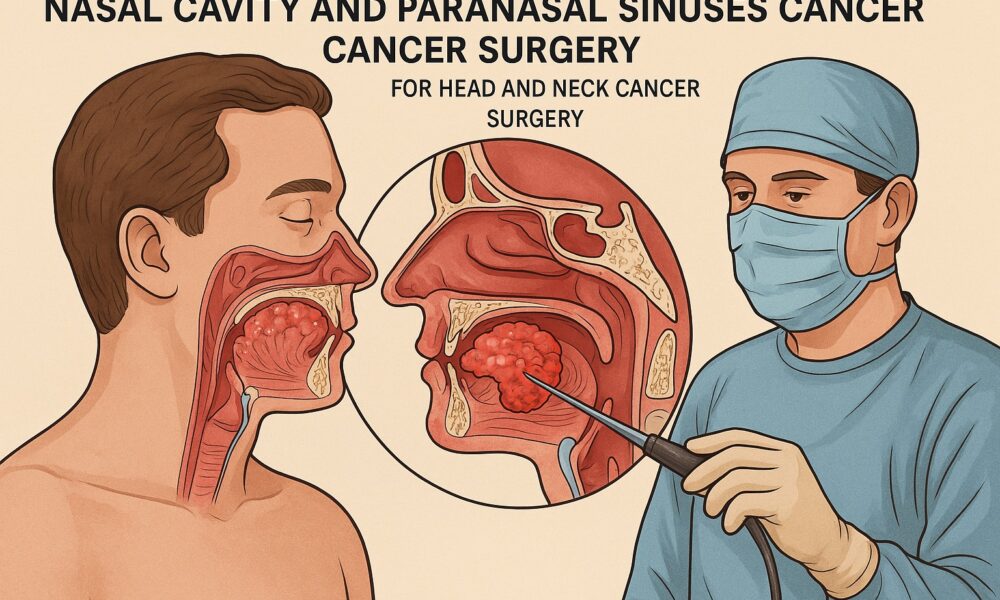Nasal cavity and paranasal sinus cancers are malignancies that develop in the nasal passages or the sinuses surrounding the nose. These cancers are relatively rare and often diagnosed at advanced stages due to their subtle and nonspecific symptoms. Early detection and specialized treatment are crucial for improving patient outcomes.
Symptoms of Nasal Cavity and Paranasal Sinus Cancers
✔ Nasal Congestion: Persistent blockage, often on one side.
✔ Nosebleeds: Unexplained or frequent bleeding.
✔ Facial Pain or Numbness: Particularly around the eyes or upper teeth.
✔ Lump or Mass: In the face, nose, or palate.
✔ Vision Changes: Double vision or loss of vision.
✔ Ear Pain or Fullness: Due to blockage of the Eustachian tube.
*If you experience any of these symptoms persistently, it’s essential to consult a healthcare professional for evaluation.*
Risk Factors of Nasal Cavity and Paranasal Sinus Cancers
- Tobacco Use: Smoking cigarettes, cigars, or pipes.
- Exposure to Industrial Chemicals: Prolonged exposure to substances like wood dust, nickel, chromium, and formaldehyde.
- Human Papillomavirus (HPV) Infection: Certain strains of HPV have been linked to an increased risk.
- Age and Gender: More common in individuals aged 45 to 85 and slightly more prevalent in men.
Diagnostic Approaches
Accurate diagnosis involves:
Physical Examination
Nasal Endoscopy & Imaging Studies
✔ CT scans, MRI, and PET scans to determine tumor size and spread.
Biopsy
Treatment Options
Surgery:
- Removal of the tumor and affected tissues. Minimally invasive techniques, such as endoscopic or robotic-assisted surgeries, may be employed for precision and reduced recovery times.
Radiation Therapy:
- High-energy beams target and destroy cancer cells, often used post-surgery or as a primary treatment in inoperable cases.
Chemotherapy:
- Systemic drugs to kill or inhibit cancer cell growth, typically used in advanced stages or combined with radiation.
Expert Care with Dr. Dushyant Mandlik
Dr. Dushyant Mandlik is a distinguished surgical oncologist specializing in the management of benign and malignant tumors in the head and neck region, including nasal cavity and paranasal sinus cancers. His expertise encompasses:
Minimally Invasive Robotic Surgeries:
- Utilizing advanced robotic systems for precise tumor removal with reduced recovery times.
Comprehensive Head and Neck Cancer Management:
- Addressing cancers of the mouth, pharynx, larynx, sinuses, thyroid, parathyroid, and salivary glands.
Reconstructive Surgeries:
- Focusing on restoring function and appearance post-tumor removal to enhance patients’ quality of life.
For individuals experiencing symptoms or seeking specialized care for nasal cavity and paranasal sinus cancers, consulting with Dr. Mandlik ensures access to personalized and advanced treatment strategies.

